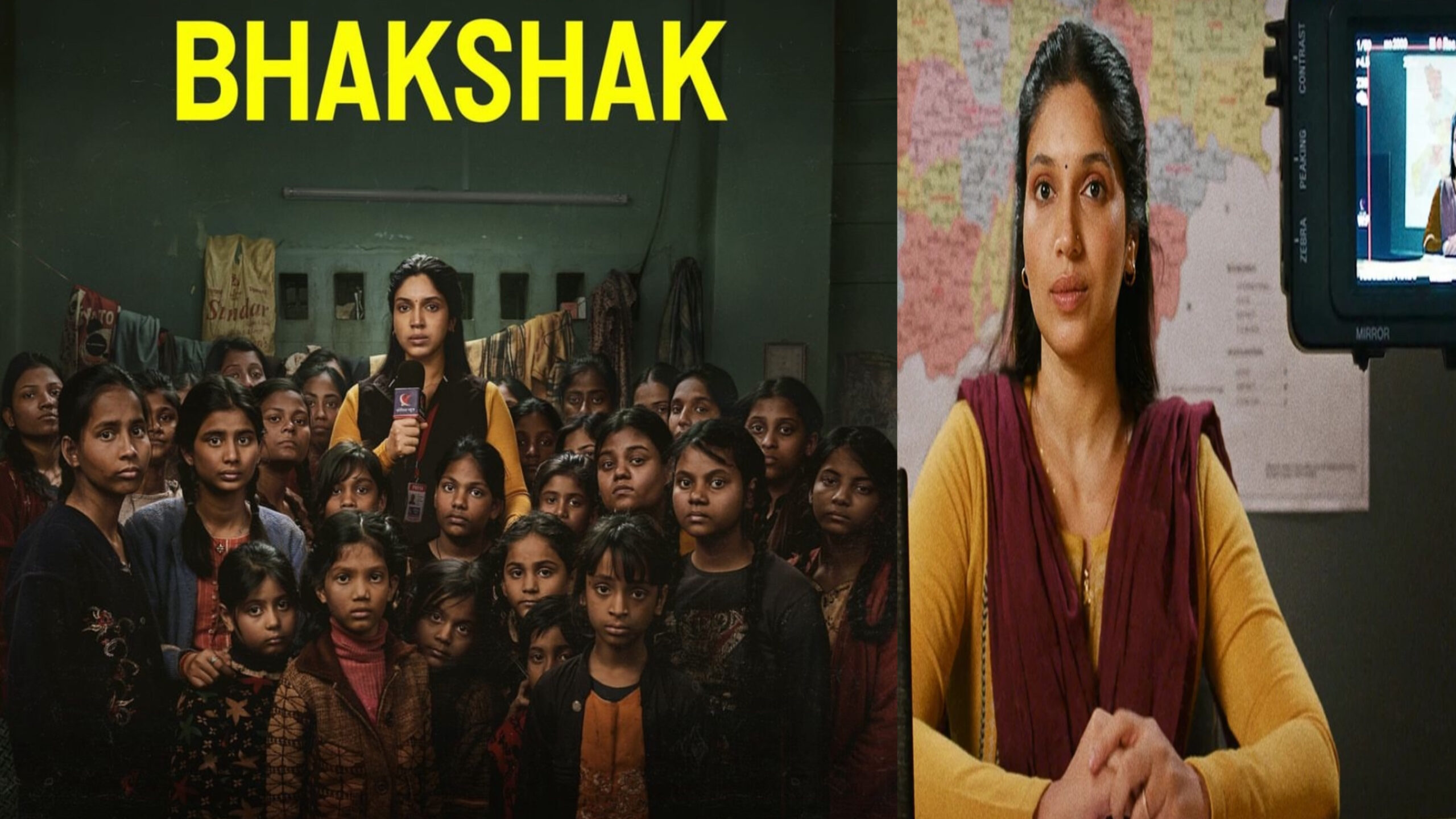Bhakshak: A Gritty Expose on the Shadows Within Shelter Homes Through Bhumi Pednekar’s Riveting Performance
In the realm of cinema that challenges the status quo and sheds light on the dark corners of society, “Bhakshak” emerges as a potent narrative, intricately woven around the grim realities of a shelter home in Bihar. With Bhumi Pednekar at the helm, portraying a tenacious journalist, the film navigates through the murky waters of crime and injustice with a storytelling finesse that is both impactful and unsettling.
Directed by the visionary Pulkit, “Bhakshak” embarks on a journey right from its opening scene that is anything but comforting. It sets the stage for a narrative that is bound to stir discomfort, reflecting on the atrocities committed behind the closed doors of a girls’ shelter home. The film, drawing inspiration from true events, does not rely on explicit gore to make its point. Instead, it employs powerful dialogues and harrowing scenes that subtly yet effectively highlight the severity of the crimes committed.
At the heart of “Bhakshak” is Vaishali Singh, portrayed with remarkable depth and resilience by Bhumi Pednekar. Vaishali, an investigative journalist based in Patna, becomes entangled in a mission to expose the dire happenings within a shelter home located in the small town of Munnawarpur. Her adversary, Bansi Sahu, brilliantly played by Aditya Srivastava, is the proprietor of the shelter and the orchestrator of the heinous crimes against the girls under his care. Despite facing significant opposition from the authorities and discouragement to cease her investigation, Vaishali’s unwavering determination is a testament to her character’s strength and commitment to justice.
The screenplay, a collaborative effort between Pulkit and Jyotsana Nath, is a masterful depiction of the challenges faced by those who dare to confront the evils within society. The narrative is a complex layering of emotions, revealing the helplessness and anger that arises from witnessing the exploitation of the vulnerable. “Bhakshak” does occasionally falter in pacing, veering into subplots that, while relevant, detract from the main narrative’s urgency. However, these moments are few and do little to diminish the overall power of the story being told.
Bhumi Pednekar’s portrayal of Vaishali Singh is nothing short of compelling. Her transition from roles in lighter films to the intense and gritty character in “Bhakshak” showcases her versatility and command over her craft. Alongside her, Sanjay Mishra offers a nuanced performance as Bhaskar Sinha, Vaishali’s cameraperson, providing occasional comic relief without undermining the film’s grave subject matter. Sai Tamhankar, as SSP Jasmeet Kaur, adds a layer of intensity to the ensemble, further enriching the narrative.
Aditya Srivastava’s portrayal of the antagonist is chillingly effective, making the audience loathe his character with every smirk and expression of indifference towards his actions. This strong casting choice adds depth to the film’s exploration of villainy and moral decay.
While “Bhakshak” navigates through familiar terrain of systemic corruption and societal apathy, it occasionally succumbs to clichés that plague many crime dramas. Yet, it is in its final moments that the film truly shines, with a climax underscored by an evocative background score and a powerful monologue delivered by Pednekar. It is here that “Bhakshak” encapsulates its core message and leaves a lasting impact on the viewer.
“Bhakshak” is not just a film; it is a critical reflection on the overlooked atrocities within small-town shelter homes. It challenges the audience to confront uncomfortable truths and initiates a much-needed dialogue on crimes that often go unreported and unpunished. Through its hard-hitting narrative and compelling performances, especially by Bhumi Pednekar, the film stands as a testament to the power of cinema in bringing to light the darkest aspects of human society. “Bhakshak” is a crucial watch, not just for its storytelling prowess but for the important conversation it starts about justice, resilience, and the fight against evil.

